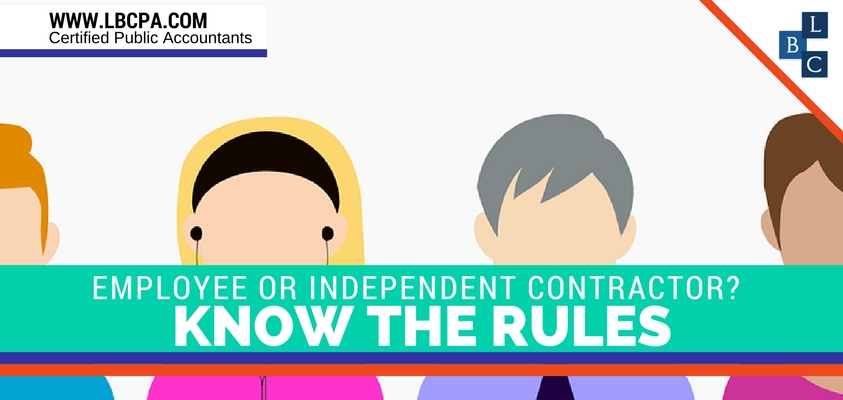LBCPA News 
Click here to go back
Employee or Independent Contractor? Know the Rules

The IRS encourages all businesses and business owners to know the rules when it comes to classifying a worker as an employee or an independent contractor.
An employer must withhold income taxes and pay Social Security, Medicare taxes and unemployment tax on wages paid to an employee. Employers normally do not have to withhold or pay any taxes on payments to independent contractors.
Here are two key points for small business owners to keep in mind when it comes to classifying workers:
1- Control. The relationship between a worker and a business is important. If the business controls what work is accomplished and directs how it is done, it exerts behavioral control. If the business directs or controls financial and certain relevant aspects of a worker’s job, it exercises financial control. This includes:
- The extent of the worker's investment in the facilities or tools used in performing services
- The extent to which the worker makes his or her services available to the relevant market
- How the business pays the worker, and
- The extent to which the worker can realize a profit or incur a loss
2- Relationship. How the employer and worker perceive their relationship is also important for determining worker status. Key topics to think about include:
1- Written contracts describing the relationship the parties intended to create
2- Whether the business provides the worker with employee-type benefits, such as insurance, a pension plan, vacation or sick pay
3- The permanency of the relationship, and
4- The extent to which services performed by the worker are a key aspect of the regular business of the company
5- The extent to which the worker has unreimbursed business expenses
If you have any questions regarding accounting, domestic taxation, international taxation, IRS representation, U.S. tax implications of Real Estate transactions or financial statements, please give us a call at 305-274-5811.
Source: IRS






